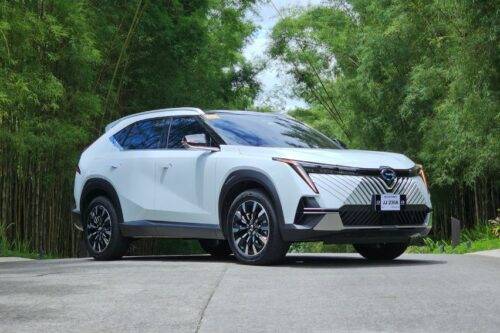WATCH: Ford conducts brain research to more accurately detect driver fatigue

MANILA: Ford is initiating new brain research that could lead to a faster and more accurate way of detecting whether the driver is starting to "switch off" behind the wheel.
Alerting drivers who are tired or distracted could help keep every road user safe since driver fatigue was previously cited as a contributing factor in up to 25% of fatal road accidents. A survey conducted in Europe also revealed that 40% of drivers do not follow the recommended practice of taking a break every two hours on long-distance driving.
In a statement, Ford Europe Research Engineer Stefan Wolter said, “The brain processes huge amounts of information when we are driving, but that may change as driver assistance technologies do some of the driving for us. Drivers also get tired and their minds can wander. Identifying more quickly when this happens could be of critical importance.”
Ford is working with neuroscientists to determine the brain responses that reveal lapses in concentration. They are also conducting a study on the possibility of matching these scans to the driver’s physical manifestation, such as changes in heart rate or breathing. “Should a loss in concentration become apparent, for example if a change in heartbeat variability was detected via wearable technology, the vehicle could then alert the driver,” Ford said in a statement.
Ford has also partnered with Uniklinik RWTH Aachen to conduct research on mapping brain patterns to driver’s reaction. Participants were asked to complete a driving simulation while their brain was being scanned by an MRI machine. A specially positioned mirror was used to help the participants see the simulation on the screen.
The scenario involved a three-lane motorway at night where a vehicle in the middle lane suddenly brakes and the participant had to take over and move the car to the left or right. The participants were also prompted by engine sounds to determine which lane was safe to move to.
The MRI machine scanned the participant’s brain before and during these actions, while the researchers measured how quickly the participant reacts and monitored changes on heart rate, breathing rate, and other physiological measures.
“We believe that by capturing this data we could one day be able to generate unique physiological driver fingerprints so that drivers of the vehicles of the future can be prepared to react and to intervene immediately in case it is required,” Uniklinik RWTH Aachen Psychoneurobiology Head and Psychosomatic Medicine Lead Consultant Klaus Mathiak, MD, PhD stated.
More than a decade ago, Ford started to include a coffee cup symbol in the dashboard cluster to alert the drivers if they are showing signs of fatigue and should take a break. The company’s current research project could further improve driver monitoring and help introduce a new set of advanced driver assistance features.
Watch this video to learn more about this unique research project by Ford.
Photos from Ford
Also read: BPI makes it easier for clients to take home a Ford
Sell your car at the best price
 Verified and genuine buyers
Verified and genuine buyers
Ford Car Models
PIMS 2024
- Latest
- Popular
You might also be interested in
- News
- Featured Stories
- Latest
- Upcoming
- Popular
Latest Ford Car Videos on Zigwheels

Ford Car Articles From Carmudi
- journal
- insurance


























































